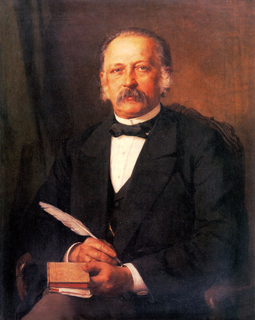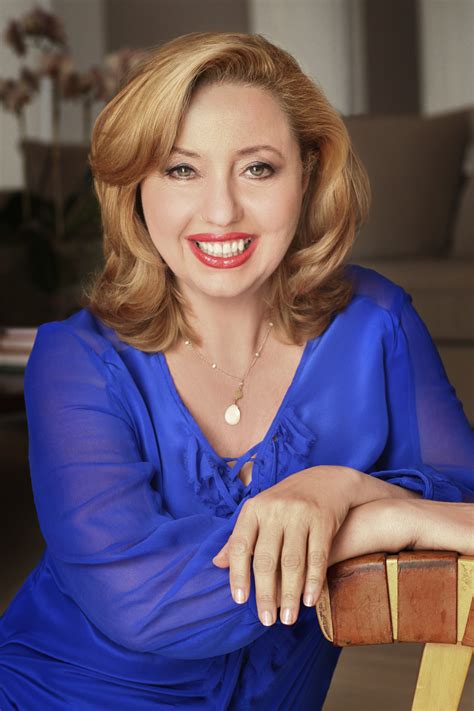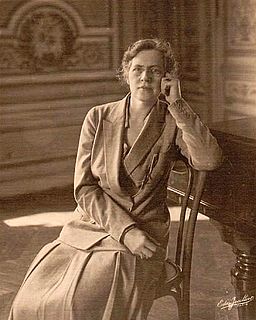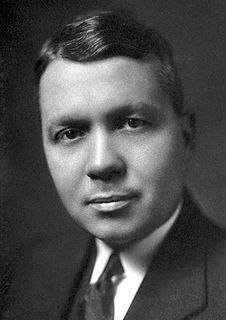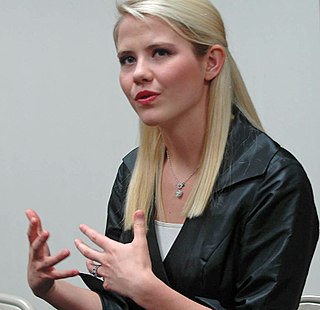A Quote by Theodor Fontane
Death accompanies us at every step and enables us to use those moments when life smiles at us to feel more deeply the sweetness of life. The more certain the end, the more tempting the minute.
Related Quotes
The primary function of poetry, as of all the arts, is to make us more aware of ourselves and the world around us. I do not know if such increased awareness makes us more moral or more efficient. I hope not. I think it makes us more human, and I am quite certain it makes us more difficult to deceive.
Be generous with your heart! The more we spontaneously give, the more connected and enriched we will feel. What if we use each other as our living temples, and put our best offering foot forward to see what direction life points us? I believe that if we live in a state of offering - even if we think we have nothing to offer - life blesses us and we feel more at peace with who we are and what we have.
It is not desirable that we should live as in the constant atmosphere and presence of death; that would unfit us for life; but it is well for us, now and then, to talk with death as friend talketh with friend, and to bathe in the strange seas, and to anticipate the experiences of that land to which it will lead us. These forethinkings are meant, not to make us discontented with life, but to bring us back with more strength, and a nobler purpose in living.
To begin depriving death of its greatest advantage over us, let us adopt a way clean contrary to that common one; let us deprive death of its strangeness, let us frequent it, let us get used to it; let us have nothing more often in mind than death... We do not know where death awaits us: so let us wait for it everywhere." "To practice death is to practice freedom. A man who has learned how to die has unlearned how to be a slave.
Too much apparatus, designed to guide us in experiments and to supplement the exactness of our senses, makes us neglect to use those senses...The more ingenious our apparatus, the coarser and more unskillful are our senses. We surround ourselves with tools and fail to use those which nature has provided every one of us.
Grief remains one of the few things that has the power to silence us. It is a whisper in the world and a clamor within. More than sex, more than faith, even more than its usher death, grief is unspoken, publicly ignored except for those moments at the funeral that are over too quickly, or the conversations among the cognoscenti, those of us who recognize in one another a kindred chasm deep in the center of who we are.
Many people falsely believe that if you want to be holy, you are not allowed to enjoy life...Holiness brings us to life. It refines every human ability. Holiness doesn't dampen our emotions; it elevates them. Those who respond to God's call to holiness are the most joyful people in history. They have a richer, more abundant experience of life, and they love more deeply than most people can every imagine. They enjoy life, all of life.
Someone with whom we have a lifetime's worth of lessons to learn is someone whose presence in our lives forces us to grow...those who consciously or unconsciously challenge our fearful positions. They show us our walls. Our walls are our wounds--the places where we feel we can't love any more, can't connect any more deeply, can't forgive past a certain point. We are in each other's lives in order to help us see where we most need healing, and in order to help us heal.
Nothing is better than music; when it takes us out of time, it has done more for us than we have the right to hope for: it has broadened the limits of our sorrowful life, it has lit up the sweetness of our hours of happiness by effacing the pettinesses that diminish us, bringing us back pure and new to what was, what will be, what music has created for us.
All of us who study the origin of life find that the more we look into it, the more we feel it is too complex to have evolved anywhere. We all believe as an article of faith that life evolved from dead matter on this planet. It is just that life's complexity is so great, it is hard for us to imagine that it did.
A distinction must be made between that writing which enables us to hold on to life even as we are clinging to old hurts and wounds and that writing which offers to us a space where we are able to confront reality in such a way that we live more fully. Such writing is not an anchor that we mistakenly cling to so as not to drown. It is writing that truly rescues, that enables us to reach the shore, to recover.
